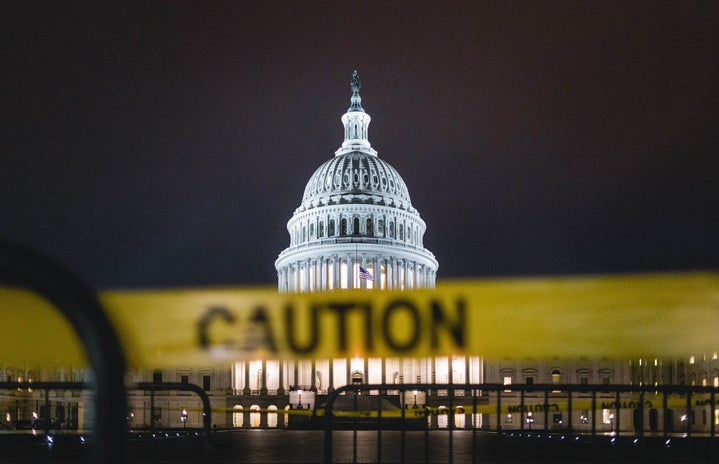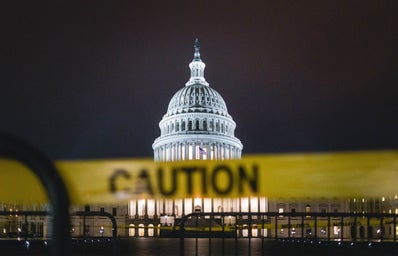Author: Seyanna Barrett
Facebook memories have a way of reminding me of instances I wish to forget but know that I have to remember. A recent memory was a story about five Black women being kicked off of a golf course in York, Pennsylvania two years ago. The club owners said they were playing “too slowly” and took “too long of a break” between holes, and when the women refused to leave, the police were called. They were the only all African American and all women golf group on the Grandview Golf Club’s course and they were, naturally, discriminated against.
Following that memory was a similar story about two Black men in Philadelphia who were arrested at a Starbucks. They were doing what people often do in a coffee shop – waiting for a friend, but that was all it took to raise suspicion. When the two men appeared on Good Morning America, they revealed that the time span between when they arrived and when the police were called was just two minutes.
As a Black woman, I am grateful that I have not personally endured what those women in York had to endure. As the daughter, sister, and niece of Black men, I am relieved to say that those men in my family have not been unjustly arrested. However, there is always this nagging, dreadful feeling that one of these days – any day – it could be me being forcibly kicked out of an establishment I earned the right to be in. Any day it could be my Dad or my brother being arrested for simply existing in their skin in a public place. This feeling, that awoke when I was around 14 years old and truly began to understand the fragility of my life (and the life of people who look like me), has never dissipated. It’s only grown over the years, especially with the realization that this ‘doomsday’ could happen in the blink of an eye. After all, it took only two minutes for the Starbucks manager to determine that the two Black men were a threat. It’s just ironic that this same conclusion isn’t made, let alone this quickly, when white people are involved.
Protests against the COVID-19 stay at home orders are happening in multiple states, with the majority of (if not all) the protestors being white. In Illinois, protesters shouting, “Open Illinois!” took to the steps of the Lincoln Statue in Springfield as part of the national “Operation Gridlock” movement. The state has more than 30,300 confirmed cases.
In Denver, cars descended upon the capitol in a gridlock demonstration, while protesters gathered on the lawn carrying signs that read, “All jobs are essential” and “Dangerous freedom over gov’t tyranny.” The state has more than 9,400 confirmed cases.
In Washington state, protestors emphatically waved cardboard signs that read “#End the Shutdown” and “Give me Liberty or Give me COVID-19!” Washington, which had the first confirmed case of the coronavirus in the U.S. back in January, now has more than 11,800 confirmed cases.
The protests that occurred in Michigan seemed to get especially raucous. As of 4/30/20, Michigan had more than 42,000 coronavirus cases and over 3,800 deaths, according to data from the Center for Systems Science and Engineering at Johns Hopkins University. Despite these high numbers, ABC news reported that hundreds of protesters, some of whom were armed with guns and rifles, entered the Michigan State Capitol building and crowded it’s halls and staircases demanding the stay-at-home order not be extended.
Numerous protesters, many not wearing masks, got into the faces of state police officers stationed inside the building. In one image that went viral, an angry bearded white man can be seen yelling, with no mask in sight and his face as red as a tomato, at two police officers as they stare straight ahead, masked, not moving a muscle. This image alone is very telling of the contrast between these protests and predominantly Black protests; not one picture, video, or any type of visual representation exists of an angry, armed Black man shouting directly in the face of armed officers. That kind of image is unfathomable, perhaps because it sounds like a death wish.
In response to these armed, right-wing, mask-absent protesters, President Donald Trump praised them and urged their Governor to bend to their will. “The Governor of Michigan should give a little and put out the fire. These are very good people,” Trump tweeted the next day, eerily echoing his defense of the “very fine people” demonstrating at the white nationalist rally in Charlottesville in 2017. “But they are angry,” Trump said of the Michigan protesters. “They want their lives back again, safely! See them, talk to them, make a deal.”
Trump has continuously portrayed protesters fighting lockdown orders as freedom-fighting Americans, but he has had drastically different reactions to other forms of protest. He has vehemently condemned the Black Lives Matter movement, tweeting in the past that the protesters were just “looking for trouble” and marching with “hate coming down the street.” “I think it’s a disgrace that they’re getting away with it,” he once said during an interview with then Fox News host Bill O’Reilly. “And it’s going to end up kicking them you-know-where. I don’t think it’s going to end up good. The fact is all lives matter.”
This abundantly clear disparity is why it is undeniable that white privilege is at the core of these protests. Despite anti-lockdown demonstrators gridlocking cities, carrying firearms to what is supposed to be a “peaceful assembly” and deliberately breaking lockdown rules by not practicing social distancing, these “good” and “fine” white people are being left alone by the authorities present.
This is in stark contrast to the treatment of Black protesters. At a 2018 protest against the police shooting of unarmed Black man Stephen Clark in Sacramento, police arrested 84 people, despite it being a peaceful march. On the other hand, Michigan State Police representative Lt. Brian Oleksy told ABC News that there were between 400 and 700 people at that volatile rally, yet no summonses were issued. This jarring discrepancy is not just upsetting; it’s triggering to the Black community, especially considering the ugly fact that our people have been killed for far less than those heckling, gun-brandishing, white protesters. We’ve been killed for the mere presumption that we were armed.
Philando Castile, 32 years old, shot dead by a police officer. He was unarmed.
Michael Brown, 18 years old, shot dead by a police officer. He was unarmed.
Tamir Rice, 12 years old. He was armed, with a toy gun.
These names and those Facebook memories that popped up on my feed are all I can think about when I see signs like “Give me Liberty or Give me COVID-19!” in these protests. The implication here is that their freedom—their liberty—is being taken away by having to stay home. That couldn’t be farther from the truth.
I doubt that these protestors have ever been burdened with the god-awful feeling that any day their life, or the lives of their loved ones, could be deemed disposable with no repercussions because the system is designed to make their lives as such. I doubt they ever had to fear my ‘doomsday’. I doubt they’ve experienced legitimate systemic oppression and erasure of liberty.
Liberty being taken away is when my fellow Black sisters can’t even play golf and my Black brothers can’t even meet in a Starbucks without their presence being questioned.
Liberty being taken away is little Tamir Rice being robbed of his innocence, his life, while playing with his toys.
Liberty being taken away is when we cannot do anything or be anywhere (including peacefully demonstrating against such atrocities) without being criminalized.
Protesting against these systemic injustices makes sense. Protesting against staying home for the health and wellbeing of not just the nation, but also yourself, is senseless. White privilege is refusing to believe this is true.


